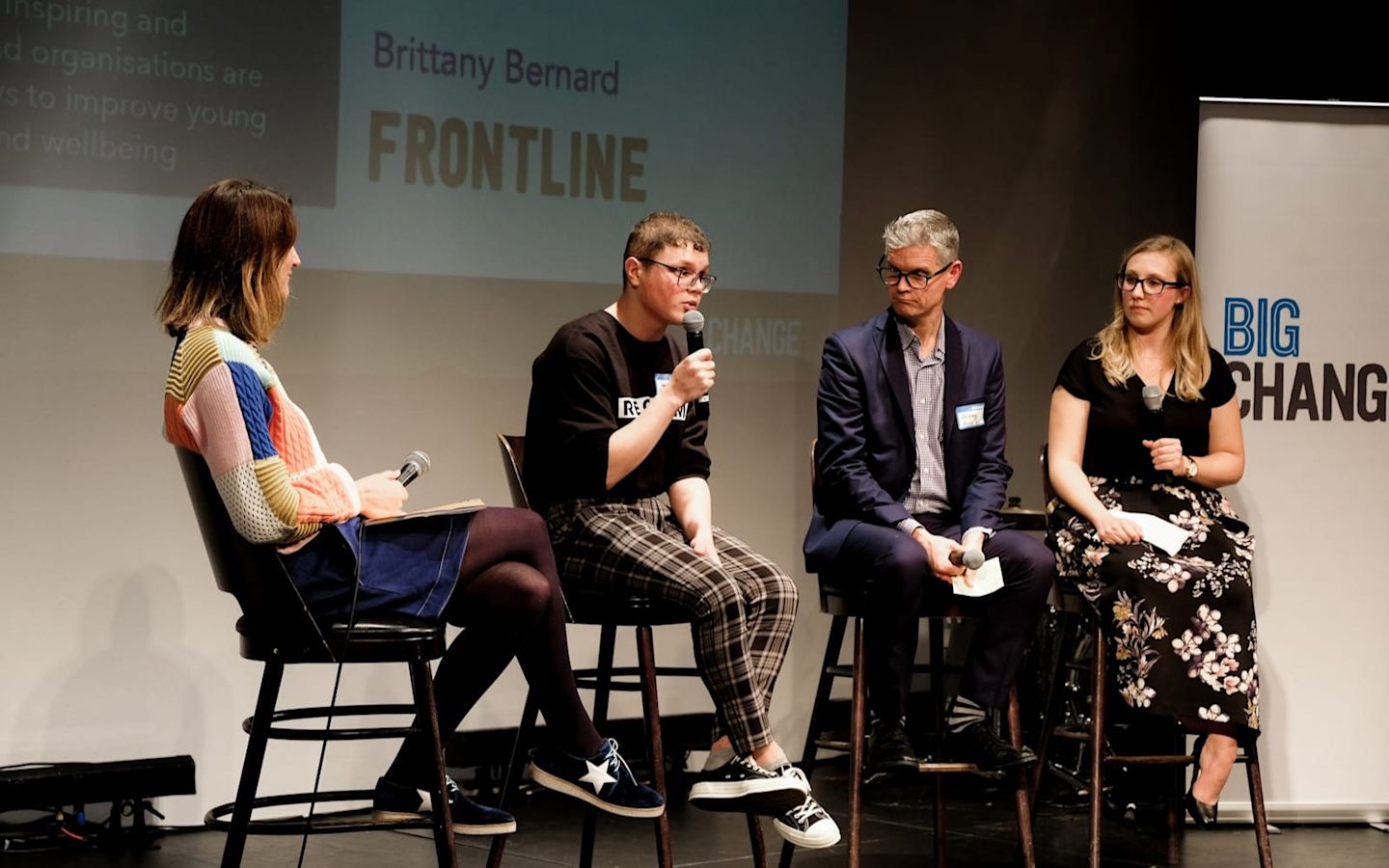How the coronavirus is impacting students – in their own words
I first met 18-year-old Jaiden Corfield at a Big Change event late last year. Listening to Jaiden talk about his personal struggles as well as his passion for education equality and social change was deeply moving. As an activist and a Youth Voice for RECLAIM – one of Big Change’s former project partners fighting for leadership equality and kids from working-class backgrounds – the team reached out to Jaiden to better understand how he and his classmates are feeling in the current situation. It was also really inspiring to hear more about his hopes for the future and the role he wants young people to play in the world of education.
How have you been feeling since the global coronavirus pandemic unfolded?
Initially, the stress was really overpowering. I’m in a group chat with my classmates and we were all asking ‘what about our exams?’ Our entire time at school has been geared towards taking these tests. How do we prove ourselves now?
For a lot of students, the whole point of exams was to prove ourselves and feel worthy of opportunities. It’s strange to think that your worth is proven by your exam results, but it’s a real thing – especially for people from a working-class background.
However, we do know that if we were to sit those exams now, it would be less of a representation of our ability than a predicted grade. We’re not necessarily learning in the most effective way. Our home lives are not equal, some children might not be able to log on to an online session, some might be living in a chaotic house. We all really felt a rollercoaster of emotions, but it feels like this is one united fight now.
You’ve had an interesting journey to becoming a passionate education advocate. Can you tell us a bit about it?
Yes! Education is the love of my life. I have been fortunate enough to fall madly in love with the power of knowledge, but it wasn’t an easy journey.
I skipped much of primary school - with a terrible attendance record and very little home education. It wasn’t because I didn’t like school, but from a young age I was made to believe that education was not for children like me.
That was something I had to overcome - an ideology I had to throw away. Then the next few years of my life were spent in the library, trying to catch up on the years I had missed.
It took one teacher to change my whole perspective, he told me that if I believed that education wasn’t for me, then it never would be. That secondary school teacher changed my life.
For the first time I believed that I could be someone and I didn’t have imposter syndrome in the classroom. I realised that education gave me wings - I just needed to decide whether to fly or stay grounded.
Have your feelings towards school changed since the COVID-19 school closures?
It’s definitely made a lot of us value school more. It’s not until something like this happens that you appreciate what school really brings. In fact, the structure and the family aspect of school is what a lot of young people use to escape.
For a few hours a day, it's often a student’s only chance to learn, make friends, and build relationships – before going home again to the chaos. School provides them with that time away, that vacation.
The school closures have made a lot of young people think about whether they’re making the most of their education. As we have to learn independently now, it allows students to learn in their own way.
When you say, “learning in your own way”, what does that mean to you?
Schools have a certain way of teaching in the classroom, but I think a lot of children learn in very different ways.
For example, those in non-English speaking families may learn by translating or by teaching younger siblings. If you’re part of a practical family, you might be more of a practical, hands-on learner.
Now that school has closed, I’m in a group chat for every different subject. We’re all teaching each other the aspects we understand. We’re all becoming our own teachers which is really fun. We’re a lot more comfortable to ask questions in the group chats, as there’s no adult involved.
There are so many different ways of learning being established. It’s really important that we learn from this experience.
Where does that leave the teachers?
I think teachers and students will have a relationship like they’ve never had before.
This situation has allowed a lot of young people to become more responsible and really recognise their own worth and ability. I think we’ll see a lot more independent and group work within classrooms when we go back.
I know there is a fear of giving young people too much control. But a peer can understand the question, explain it and maybe answer it in a way that the teacher couldn't.
With no exams, we’re focusing on independent, individual goals. Now you need to think about what you want to gain from education like never before. Without exams, the only reason you’re doing the work is because you want to gain something.
More than ever, teachers are going to become role models to encourage students to continue studying in order to reach life goals.
Are all your friends as motivated as you are? Or are some people getting left behind?
I think, if we all get help from home, we take it for granted. Not everyone can ask their parents or carers for help.
A lot of schools have put provisions in place and have told pupils to let them know if they’re struggling. But I know that many would rather struggle at home than admit they don’t have the resources.
When we go back, the children that haven’t completed the work will be behind. Teachers will need to dig a bit deeper instead of asking why the work hasn’t been completed in front of classmates. Many. students will be defensive, and say they couldn’t be bothered, rather than admit the truth and make themselves feel vulnerable.
If this process is done right, we’ll see teachers and an education system that genuinely cares about the wellbeing of a young person rather than just the academics outcomes.
What’s your number one hope for education?
I want young people to be included in discussions about education - so we can make a real change. We must ask all young people, unite forces and allow them to fly.
Many young people have imposter syndrome when it comes to talking about education change as they’re not given the platform to share their views. I think when we give young people a chance to talk, we’ll see the greatness comes out.
In times like this, it’s so important to give all young people a voice when it comes to education. Thank you so much for sharing your thoughts with us Jaiden!
Jaiden is also now working as Treasurer for Rekindle School, a project partner currently funded by Big Change. Follow these links to also learn more about the RECLAIM project, Rekindle School, and our education mission at Big Change.







